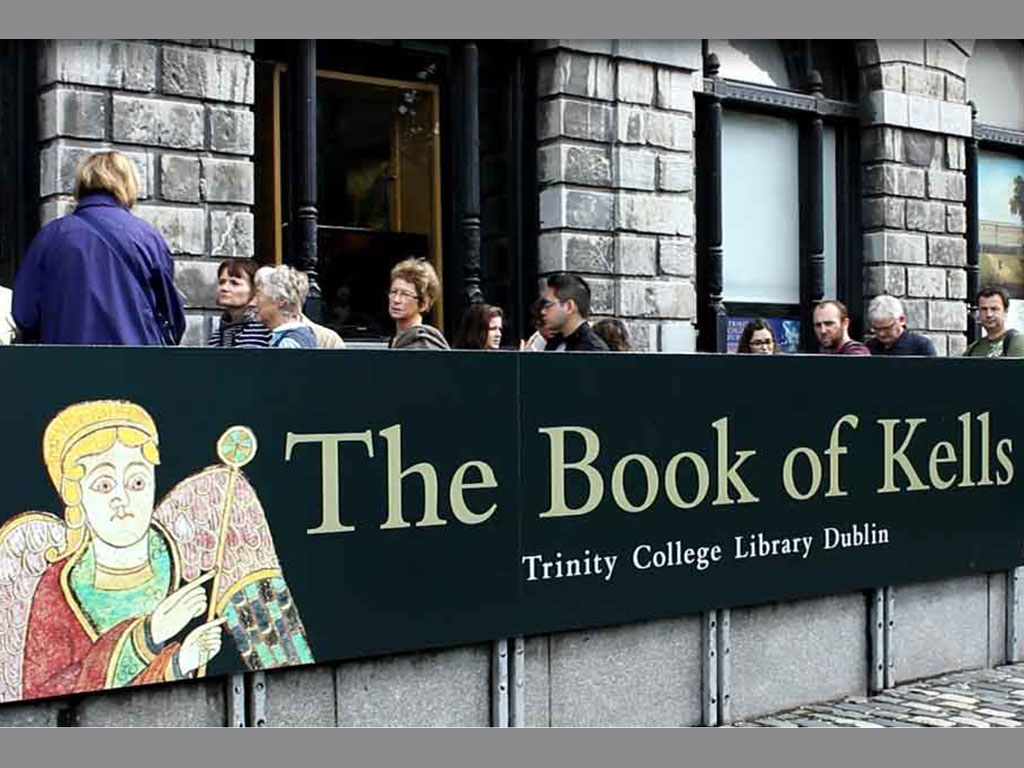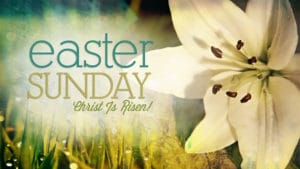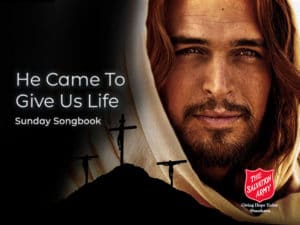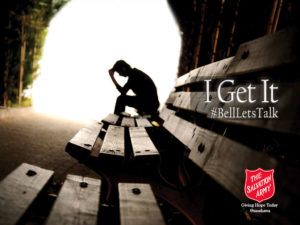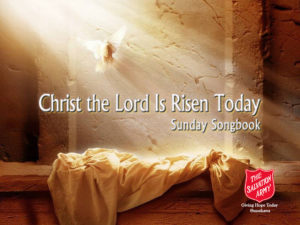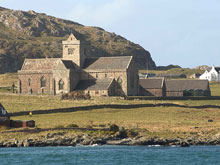 On the small island of Lone, off the west coast of Scotland, a monastery was founded in the year 561 by Saint Columba, an Irish abbot and missionary.
On the small island of Lone, off the west coast of Scotland, a monastery was founded in the year 561 by Saint Columba, an Irish abbot and missionary.
The abbey served as a base for spreading Christianity among the northern kingdoms of Scotland. It was an important political and religious institution until the early 9th century when a Viking attack caused the surviving monks to take refuge at the Abbey of Kells in County Meath, Ireland.
It is believed that around this time, the Book of Kells, a manuscript of the four gospels of the New Testament, was completed by the Columban monks. It is considered a masterpiece of Celtic art with lavish decoration and elaborate ornamentation―intricate, bold and energetic. The 12th century writer Gerald of Wales states: “Fine craftsmanship is all about you, but you might not notice it. Look more keenly at it and you will penetrate to the very shrine of art. You will make out intricacies, so delicate and so subtle, so full of knots and links, with colours so fresh and vivid, that you might say that all this were the work of an angel, and not of a man.”
[masterslider id=”2″]
Kells Abbey was plundered and pillaged many times over, yet the Book survived. A reference in the Annals of Ulster (entries span 431AD to 1540AD) tells us that the book ‘was wickedly stolen during the night’ and recovered months later “under a sod”―probably a bog―without its gold and bejewelled cover.
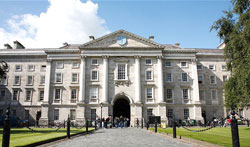 The Book of Kells was taken to Dublin during the dissolution of the monasteries under King Henry VIII and, in 1661, found its way to the cobbled streets of Trinity College where it has been on display since the 19th century. On a visit to Ireland a number of years ago, I had the opportunity to go to the exhibit entitled ‘Turning Darkness into Light’ and see this extraordinary book. I expected to view a dull, decrepit manuscript once rescued from a bog but instead was taken aback and wonderfully surprised by the vibrant, living word before me.
The Book of Kells was taken to Dublin during the dissolution of the monasteries under King Henry VIII and, in 1661, found its way to the cobbled streets of Trinity College where it has been on display since the 19th century. On a visit to Ireland a number of years ago, I had the opportunity to go to the exhibit entitled ‘Turning Darkness into Light’ and see this extraordinary book. I expected to view a dull, decrepit manuscript once rescued from a bog but instead was taken aback and wonderfully surprised by the vibrant, living word before me.

